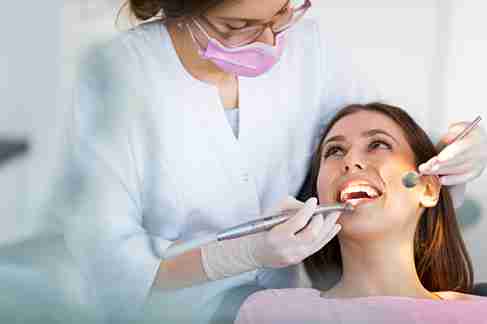Dental consultations are a vital component of your overall health care routine, yet many people approach them with hesitation or uncertainty. Whether it’s due to past experiences, fear of discomfort, or a simple lack of knowledge, understanding what actually happens during a standard dental consultation can ease those concerns significantly.In this blog, we break down the consultation process step by step to give you a clearer picture of what to expect — from the moment you book your appointment to walking out with a confident smile.
Booking and Preparing for Your Appointment
The first step in your dental care journey begins before you even walk through the door. Booking an appointment has never been easier, thanks to online systems, mobile apps, and efficient front desk support at most dental clinics.
Preparation tips for a smooth consultation:
- Arrive early: This allows time for check in and paperwork.
- Brush and floss: A clean mouth helps the dentist carry out a better assessment.
- Bring a list of medications: Especially important for those on long term treatment.
- Note any symptoms: Keep track of anything unusual like bleeding gums, sensitivity, or mouth ulcers.
Staying proactive with your oral health helps your dentist in Bracknell provide tailored and efficient care during your consultation.

Initial Meet and Greet with the Dental Team
When you arrive, the reception team will greet you warmly and confirm your appointment. You may be asked to fill in or update a medical history form, which is essential for safe and personalised dental care.
Why your medical history matters:
- Links between oral and general health
- Certain conditions or medications affect treatment
- Helps prevent complications during procedures
Once your paperwork is complete, a dental nurse or assistant will escort you to the consultation room. This space is purposefully clean, quiet, and calming to help reduce any anxiety and make you feel at ease before your check up begins.
Patient Dentist Discussion
Your consultation begins with a brief conversation with the dentist. This gives you a chance to discuss any discomfort, changes you’ve noticed, or cosmetic concerns. It’s also where your dentist gets an idea of your daily oral care routine.
Topics you might cover:
- Pain, swelling, or sensitivity
- Recent dental procedures or treatments
- Concerns about tooth colour or alignment
- Habits such as smoking or grinding teeth
By opening up, you help your dentist in Bracknell tailor the examination and offer guidance that truly meets your needs.
Video link – Emergency Dentist in Bracknell – Same-Day Appointments
Comprehensive Oral Examination
Once the initial discussion wraps up, the dentist begins a detailed visual and physical inspection of your mouth. Using a small mirror, probe, and headlight, they will assess the overall condition of your teeth, gums, and oral tissues.
Here’s what’s typically checked:
| Area Examined | Purpose |
| Teeth | Check for decay, cracks, or worn enamel |
| Gums | Identify signs of gingivitis or periodontitis |
| Tongue and cheeks | Screen for ulcers, lesions, or infections |
| Jaw alignment | Assess for bite issues or grinding damage |
If there are no urgent issues, the exam will be quick and non-invasive. If symptoms point to more serious concerns, further investigations or referrals may be arranged.
Dental XRays (If Needed)
Not all consultations require X-rays, but your dentist may recommend them if you’re experiencing pain or if they suspect issues that aren’t visible during the standard exam.
Common reasons for taking X-rays include:
- Decay between teeth or under fillings
- Bone loss due to gum disease
- Impacted teeth or abscesses
- Infection around the root of a tooth
Should urgent issues arise during your check up, you may be referred immediately to an emergency dentist in Bracknell to prevent complications. Digital X-rays are safe, quick, and offer invaluable insight into your oral health status.
Cleaning and Hygiene Guidance
In certain consultations, a scale and polish may be performed, particularly if it’s been some time since your last professional cleaning. This treatment is typically performed by a dental hygienist.
The cleaning process includes:
- Scaling – Removal of plaque and hardened tartar
- Polishing – Smoothing the tooth surfaces to eliminate surface stains.
- Fluoride application – Strengthens enamel (if recommended)
Following your cleaning, the dentist or hygienist may offer tailored oral hygiene advice. This often includes:
- Best brushing techniques and toothbrush types
- Effective flossing or interdental brush methods
- The impact of sugar and acidic foods
- How lifestyle habits (like smoking) affect gum health
Routine cleaning is an essential part of preventing decay and gum disease, reducing the likelihood of needing an emergency dentist in Bracknell later down the line.
Treatment Planning or Follow Up
If any dental issues are identified during your consultation, whether simple or more serious, your dentist will discuss the available treatment options in a clear and reassuring manner.
Treatment planning may involve:
- Outlining required procedures (e.g., fillings, crowns, root canal)
- Providing cost estimates and timelines
- Discussing anaesthetic or sedation options if needed
- Booking follow up or specialist appointments
Where no immediate treatment is needed, your dentist will simply recommend a suitable recall period, usually between 6 and 12 months, depending on your oral health and risk factors.

Tips for Making the Most of Your Consultation
Here are a few tips to ensure your visit is productive and stress free:
- Be honest: Don’t downplay pain or hide habits, your dentist isn’t there to judge.
- Ask questions: Understanding your treatment options leads to better decisions.
- Stick to advice: Follow through on aftercare or hygiene tips provided.
- Act early: Don’t wait until it’s an emergency, early treatment is always easier and more affordable.
- Track symptoms: Even minor discomfort can be a sign of a developing issue.
The purpose of a dental consultation is not just to provide treatment but also to inform and equip you to take charge of your oral health.
Conclusion
Regular dental consultations play a pivotal role in maintaining healthy teeth and gums, identifying problems early, and preventing future complications. By understanding each step of the process, from booking and discussion to examination and aftercare, you’ll feel more at ease and more in control of your oral health.Whether you’re attending a routine check up or seeking support for a sudden issue, the team at Bracknell is committed to providing high quality, compassionate care that puts your well being first.


